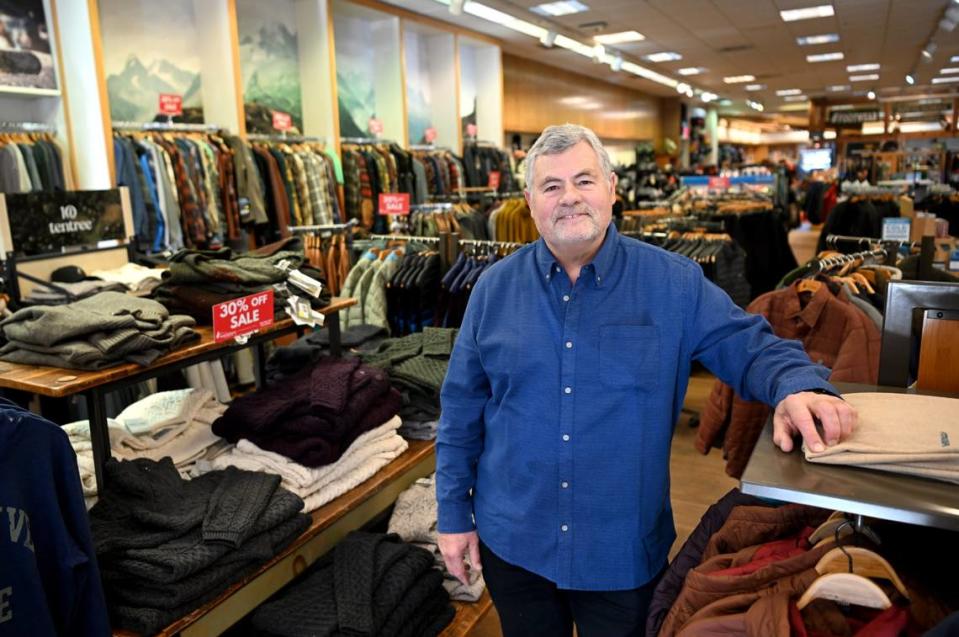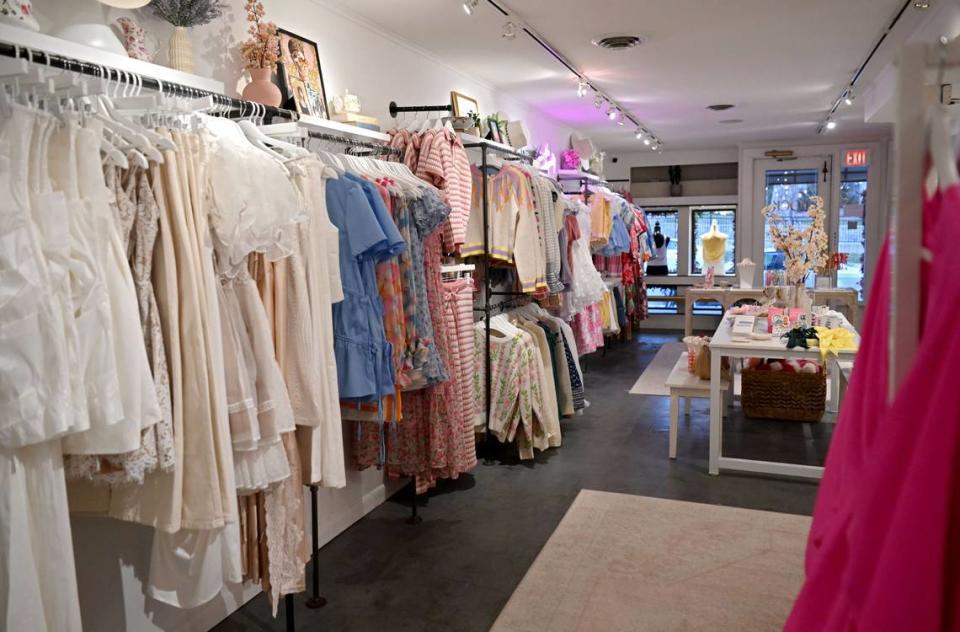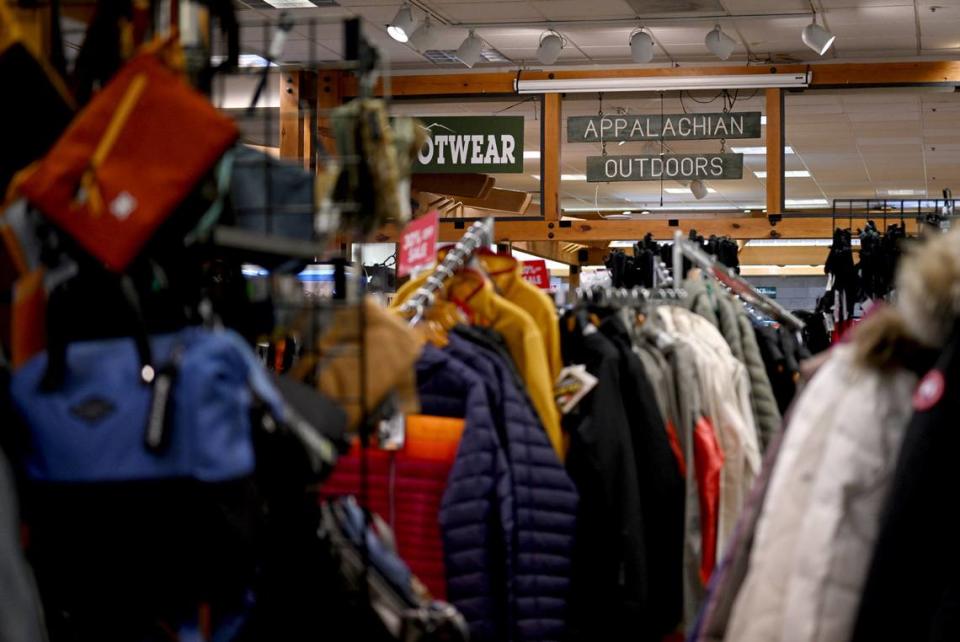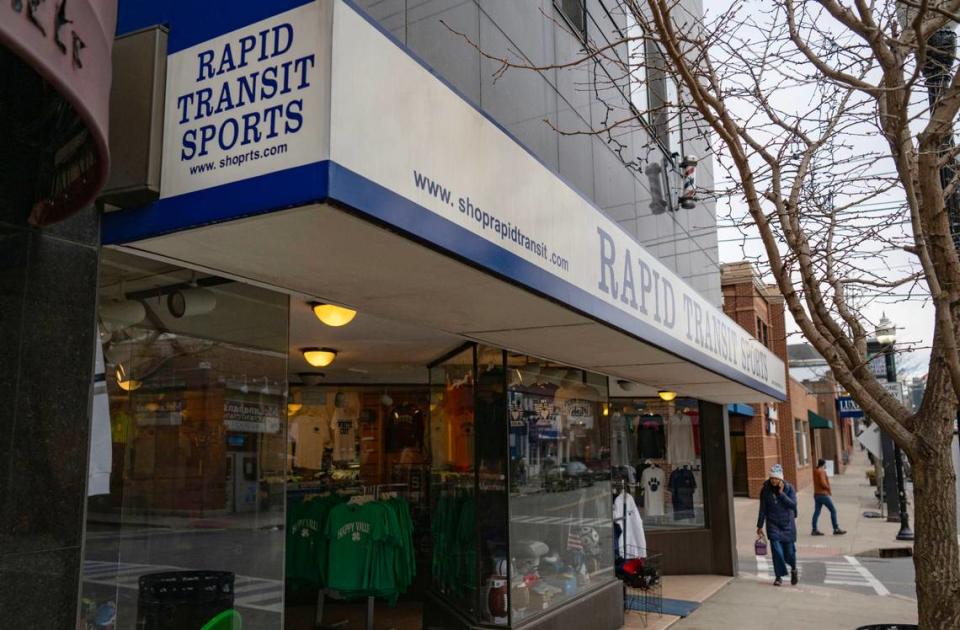Change is inevitable in downtown State College. What do small businesses need to survive?
Downtown State College’s business landscape personified may look similar to the composite image of the students who putter through University Park, some of whom are using their newfound freedom to figure out what they want their identity to be.
Other students-turned-alumni leave Happy Valley with a degree in hand as they chart their future and wave goodbye to everything they’ve known for the past four-ish years.
Little can be known with certainty, except change is inevitable. The precious space on the south side of East College Avenue is not exempt.
The evolution has often put townies at odds with developers that increasingly cater toward students while the borough tries to play peacemaker. Small businesses, meanwhile, are left to wonder if there will be room for them in the next iteration of downtown State College.
“Things have been pretty stable for us, pretty predictable. We know what’s expected of us. Now we’ve turned a corner,” longtime Appalachian Outdoors owner Geoff Brugler said. “Real estate in this town has turned a corner and will probably never go back. Instead of most of the development being done by local developers an awful lot of it’s being done by money outside.
“There’s certain opportunities that are new here, but there’s some opportunities that are gone. That’s like parents having an empty nest — the house is never going to feel the same way that it has for a long time.”

Downtown State College has grow up in both the literal and metaphorical sense in the past decade, one that ushered in a new era of high-rises that make the early 2000s feel like a bygone era.
Small businesses have to compete with regional and national chains in their backyard, in addition to online Big Tech companies that don’t have to spend time convincing would-be customers parking isn’t an issue.
“The parking mess is getting worse and it’s not getting better. And the more high-rises we build without parking, it’s going to get worse,” Rapid Transit Sportswear manager Terry Losch said. “How do locals survive if people can’t get to our store? We’re not internet businesses.”
Booming development spurs changing downtown landscape
State College, at least in the eyes of Your Cigar Den owner Tony Ghaffari, is driven by “passion and inexperience.” No shortage of businesses have closed in recent years, but efforts are underway to identify problems and solutions.
The borough’s Redevelopment Authority turned to a Philadelphia-based real estate and development company to help identify ways to attract new businesses and retain existing ones.
Chief among the challenges identified in the 100-page report made public in January are commercial vacancies and getting more residents and workers to patronize local businesses.
“Foot traffic helps a lot. But I also say you’re not going to go to a beach town and sell ski gear,” Lock Boutique owner Lydia Shafer said. “Even though the foot traffic might be heavier, you still have to be offering a product that relates to where you are. That’s a huge thing.”

Available retail space downtown increased 164% since 2013, the year Borough Council allowed developers to construct additional floors of residential units if they built ground floor retail and second-floor office space. At least seven mixed used high-rises have opened during that period, with others in the works.
More than half of the space is vacant, which presents a two-fold problem for those who’d like to see a finished product: It’s costly to finish the construction and most developers don’t need the space filled to make a profit.
Other small businesses have closed because of retirement, consolidation and lack of planning for a successor.
“When you have your own business you can work whenever you want as long as it’s at least 50 hours a week,” Brugler said. “You can choose your hours as long as you don’t have too much spare time for yourself.”
Most, but not all, of the business owners who spoke with the Centre Daily Times said they felt supported by the borough and economic organizations such as the Downtown State College Improvement District.
The last time downtown property owners had an opportunity to weigh in with a vote on the nonprofit, they opted in 2021 for another five-year term. About three in ten property owners wanted to end the organization.
Drumming up more support for small businesses was one of the three short-term recommendations identified in the attraction and retention report.
The improvement district advertised a position in January for an experienced retail advocate in a salaried position, rather than one that works on commission. The report spelled out nearly a dozen roles and responsibilities for the position, but summed it up by describing the job as an “overall booster for all retail activity” in downtown State College.
It’s set to be funded for three years, though the goal is to make the position permanent.
The report also included five long-term recommendations, everything from investing in public infrastructure and programming targeted for residents to the potential consolidation of Centre Region municipalities and “aggressively” marketing Happy Valley.

Foundation of future downtown State College being laid now
Key to shaping long-term development in the borough is zoning, a behind-the-scenes process that broadly governs what can and cannot get built. State College’s zoning ordinance contains nearly two dozen different districts and classifications that each present different parameters and restrictions for development.
The bulk its current ordinance originated in 1959 — seven years before Penn State named Joe Paterno as its football coach. Amendments — some big and some small — have been made more than 220 times.
The borough is more than six years into a comprehensive examination of those codes and potential changes, a tricky balance that attempts to accomplish policy objectives with rules that will still attract developers. Leaders have said it’s one of the borough’s top priorities.
One of the hopes, Borough Council President Evan Myers said, is to create affordable space downtown for businesses.
“There are businesses that would like to locate there, but they’re having a tough time finding affordable space,” Myers said. “If through zoning incentives we can provide that opportunity for business, we should take it.”

Nearly everyone involved in downtown State College seems to agree on the area’s value — from the outside developers that have invested tens of millions of dollars to the tens of thousands of students who choose to make it a temporary home and the small businesses with the small-town charm townies crave.
The challenge, at least part of it, is finding harmony. Otherwise there may only be memories to hold on to. Lingering between now and the next era of small business in downtown State College are the worst kind of questions — those without an easy answer.
“What does State College want to be? There’s an identity crisis here,” Ghaffari, the owner of the cigar shop, said as he gestured with his hands. “You’ve got on this side the people who want the old-time charm and they want it not to change; on this side, you’ve the people who want progress.
“If we’ve lost it, we need to embrace that and move forward and figure out what the next steps are and not try to go back because you’re not going to tear down the high-rises. They’re just not going to go away. They’re there. So can you still keep that charm? I don’t think we can. That’s not to say it’s gone from the entire area. We just have an identity crisis. They’re pulling in two opposing directions.”


